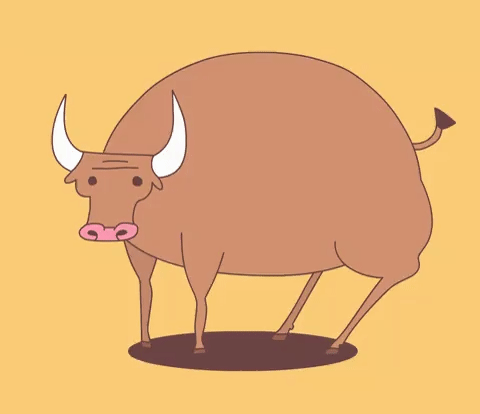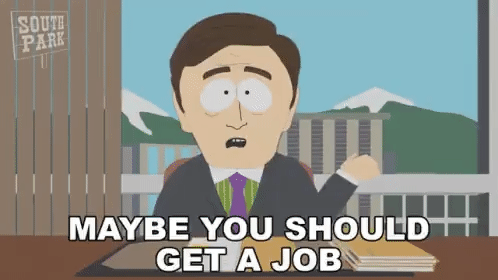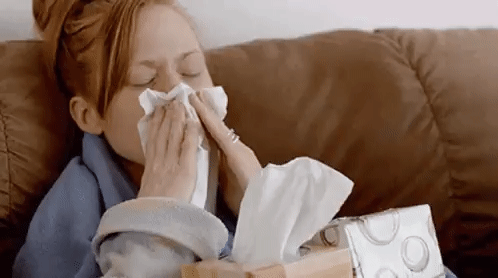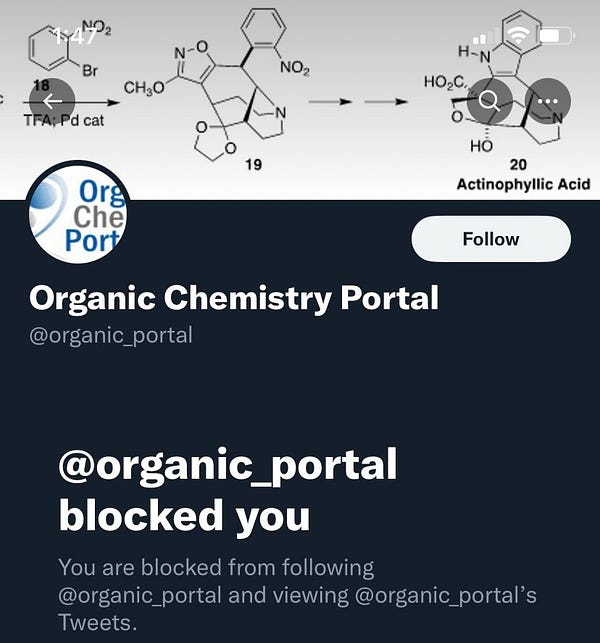Below are collected Twitter ramblings from January 2023. As usual, a little additional commentary thrown in along the way.
This month’s photo of the month was taken on my sole hike of the month at Whittemore Sanctuary in Woodbury, CT. The trails are quiet at this time of year and there’s a certain solace in being alone in the woods in the depths of winter.


The truth will set you free.


Starting right out of the gate in 2023 on the free drug hypothesis. While some of the more technical fiddly bits of this article talk about the difficulty of measuring intracellular free drug concentrations, it’s almost entirely a full-throated defense of the free drug hypothesis concept. One thing I really appreciate them talking about is volumes of distribution. There’s a false sense among some medicinal chemists that a low volume of distribution (as evidenced by certain classes of compounds like carboxylic acids) indicates that a compound has poor tissue penetrance. Well, that’s only half correct: it reflects a reduced total drug tissue penetrance — but not free drug. The principal driver of volume of distribution is differences in plasma protein binding vs. tissue binding. If a compound has very high nonspecific tissue binding (like basic amines, which love to interact with all those charged phospholipids lying about cells), total drug concentrations could be much higher in tissue than plasma, and a large volume of distribution will be measured. And just the opposite for carboxylic acids. But guess what gang? Free drug is still the same everywhere. A low volume of distribution does not mean that free drug is not reaching the site of action.



I teach the free drug hypothesis to new hires on a regular basis, because you’re not serious about discovering drugs if you don’t grasp the concept. I then often teach it to them again when their projects reach the point of gathering their first in vivo PD and efficacy data. Having your own real world example and watching the pieces fall into place in someone’s mind is gratifying for this old hand. This is also one of those things that I learned embarrassingly late in my career, and nobody should have to learn it the hard way like I did.
After a solid 3 years of avoidance, XBB.1.5 finally got me. Thankfully nobody else in the family caught it from me this time around. I had a mild course of symptoms and had fully recovered in around 7 days. The first two days were especially miserable though, like a bad cold layered with a great deal of fatigue. Fortunately my work provides tons of sick days, so I was able to take off as much time as I needed and do little except rest.


This was a subtweet and concurrent with what’s become known as #OCPGate. The guy running Organic Chemistry Portal, which is normally a great and non-controversial resource, had a moment lashing out at “chemfluencers” over their receipt of Sigma-Aldrich branded chocolates, which ended in quite a few blocks. I was never a recipient of said chocolates, but appear to have crossed some “chemfluencer” threshold regardless. That’s all I’m gonna say about it in public, because I’m taking the high road. Hit me up at the pub if you want to hear more.
Aforementioned block. My day-to-day quality of life: unchanged.


Labor market dynamics, again. Interesting to note though that since the tail end of 2022 and into 2023, a number of large (and small) pharma companies have announced layoffs and site closures. There are definitely some macro headwinds (stock market down, inflation high, interest rates high, concerns re: Inflation Reduction Act, etc.) that seem to finally be taking their toll in 2023. That said, the larger point in the article about better pay and benefits, less toxic working conditions, etc. in industry: all of that’s still true and unlikely to change. Industry is still a great place to be. And for the folks who’ve heard you’re selling your independence or your very soul to work in industry… think long and hard about who it is that’s saying that to you, and whether or not they have any experience to back up their assertions. (They usually don’t.)


Who’s your drug discovery spokesperson? For me, Marshal Cogburn will do just fine most days of the week.
Parting shot in #OCPGate. Sad Pablo Escobar was made for this moment.


Facts. I still occasionally run across seasoned pharma industry researchers who otherwise have good heads on their shoulders — and I’m talking people with 25+ years of experience — who never got the memo on the free drug hypothesis.


80%+ (maybe even 90%+) of the biological literature fails to reproduce well. We spend a lot of time in the pharma business reproducing results and pressure-testing literature compounds. The cost of running with something that turns out to be bogus is high, and we can’t afford it. Unfortunately, many of the folks publishing the groundbreaking findings also lack the proper resources and infrastructure to do things in a way that will pass the industry BS test.


A mix of positive and troubling findings from this poll. In general, I sense that folks in academia looking to make a transition to industry aren’t consistently getting the support and resources they need to manage that transition effectively. This was the beginning of an occasional series of Friday posts where I talk about things related to making the transition. Some really practical, nuts-and-bolts stuff like how to navigate a phone interview. There are unwritten norms in industry too, so I’m going to spend more time this year calling out that kind of stuff. I wish Twitter would let me pin two threads so I could roll up all of the career advice in a mega-thread at the top of my page. Alas.


Still not clear if this OP was parody, but man. If you want to change the way things are done, you kinda need people on your side to make things work. Grouping everyone in biotech into a single mass and insulting them all is an interesting opening gambit. Setting aside the fact that Silicon Valley is in the process of having its dreams dashed on the messy, rocky shores of human biology.


And let me tell you, ChatGPT can write BS about quite a lot, in a way that’s indistinguishable from genuine truth to a layperson in a given area.


My grad school stipend in 2002 was under $20K/year. My starting salary in the pharma industry that year, in a low cost of living area, was $85K. Adjust for inflation to 2023, and those numbers aren’t far off the mark for where we are today. It’s narrowed some due to universities trying to make up some ground on the criminal underpayment of graduate students, coupled with industry real wages not fully keeping pace with inflation over the same period. There’s no question though that you’ll make more money — a lot more — in industry than you will in academia. I don’t see that changing anytime soon, because the gulf is too vast. And tenured academic positions are so few that there’s little incentive for universities to raise wages when people are falling all over each other to try and grab those positions.
Burnishing my chemfluencer cred.


This was the beginning of the Friday occasional series on getting an industry job and transitioning out of academia. These have been pretty well-received so far, so let me know what you’d like to see in future posts!


January was an awful month for my physical wellness. Thankfully I got rolling on Tamiflu quickly and experienced a dramatic turnaround within the first 6-8 hours of the first dose. The bigger issue is that I spent so much time in bed that I wasn’t able to consistently keep up with my regular exercise regimen, and when I finally was able to, I injured my knee (just a sprain, thankfully) — but that cost me even more time rehabbing to get back to my exercise routine. Things are just now starting to feel normal-ish again as I’m writing this in early March.


The reckoning is coming, and soon.


I’m so over this. If you went to graduate school and earned a doctorate of any kind, you’ve earned the right to be called “Dr.” if that’s what you want. I choose not to use it in most settings myself, but the point is: it’s a choice. Enough with the elevation of medical doctors over the rest of us who earned the terminal degree in our respective fields.


Ok, maybe I had one more parting shot in #OCPGate. 😉









